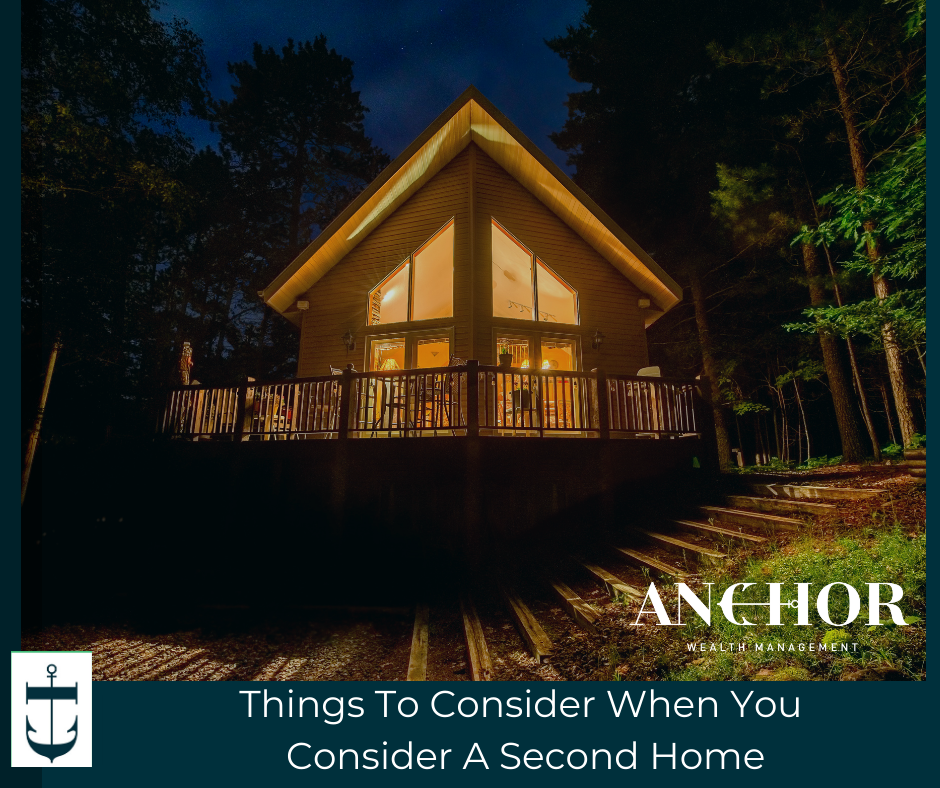
One of the most rewarding parts of my work as a financial advisor is watching people go from uncertainty about their future to confidence in their future. In the transformation, they go from reluctant goal chooser to relentless goal chaser. The confidence that comes from having a plan in place often leads to new, bigger goals. One of the most recurring big goals is a second home. While a second home seems to be solely reserved for individuals who summer in the Hamptons, the truth is that a second home is very achievable. Like all things, it requires a plan and commitment to that plan to make it possible.
If a second home is on your horizon—as a regular vacation destination or a retreat to warmer weather—there are a few tactics to consider that can make it fit your financial plan.
Purchase Outright
The first, and likely most appealing, is the purchase of a second home with the sole intent to use it for you. The benefit of this is that the home is available to you whenever you want, and you maintain agency in usage. The important thing to understand when considering this as the option for ownership of a second home is the intent behind it. This drives back to Anchor’s core beliefs of understanding money’s purpose in your life instead of focusing on its performance. Don’t purchase a second home purely for the show of it, make it part of a grounded financial plan.
Consider the true cost of a second home when considering a purchase; property taxes, insurance, HOA dues, upkeep and furnishings. Make sure these things are accounted for in your plan. If everything is accounted for and the budget fits your plan, go for it!
Purchase To Rent
A second home can be considered an investment. Owning a home in a desirable vacation spot can open opportunities for renting out the home as a source of income to help offset or even cover the expense of the home. This option may be appealing because it makes the vacation home an investment with a greater chance of return. There are a few things to consider before going this route. First, is renting the home even an option? There is an emerging trend among cities and HOAs in desirable communities that prohibit short-term rental of properties. In these instances, if rentals are allowed, they require long-term rentals. Sometimes as long as 90 days! This can limit the availability of your vacation home for your own vacation uses. When you decide to rent your home, you will still be responsible for upkeep and repairs of the property. This means managing the property yourself or finding a management company you can trust.
Just Rent
The most conservative option for a vacation home is to just rent a property. While the initial upfront costs of renting will be more than the other options, you will not be exposed to upkeep, taxes, or other expenses associated with ownership. Renting a property for an extended period will also allow you to get a sense of the neighborhood and the culture. If you don’t care for it, it’s much easier to change locations!
If a second home is on your dream list, talk to your financial advisor and let them help you make it a reality! An Anchor advisor can help you create purpose in your comprehensive financial plan and help with the accountability required to achieve your financial goals.
Kirk Pearson, Wealth Advisor
